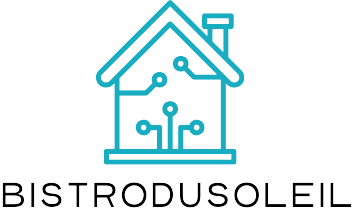Table of Contents
ToggleBuying a home isn’t just a dream; it’s a ticket to financial freedom wrapped in brick and mortar. Imagine sipping coffee in your own kitchen instead of someone else’s rental. Owning a home can feel like winning the lottery—without the awkward family dinners discussing your newfound wealth.
Understanding Buying a Home Financial Benefits
Owning a home presents various financial advantages. Homeownership builds equity, which increases as property values rise. This growth in equity contributes to overall wealth over time.
Mortgage interest deductions offer significant tax benefits. Homeowners can deduct interest payments from taxable income, reducing tax liabilities. This represents a further profit on investing in a home.
Appreciation plays a crucial role in financial gains. Historically, home values appreciate at an average rate of 3 to 5 percent annually. This appreciation means that a home can be a substantial financial asset in the long run.
Renting often contributes to lost opportunities for building wealth. Every monthly rental payment serves as an expense instead of an investment. Homeowners benefit from fixed mortgage payments, ensuring stability against rising rental costs.
Homeownership creates avenues for potential income. Renting out part of a home, such as a basement or an extra room, generates additional cash flow. This income stream further enhances financial stability.
Retirement planning can also benefit from owning a home. A paid-off home can significantly lower living expenses during retirement. Having a home free of mortgage enhances monthly cash flow, providing more room for savings and leisure.
Overall, the financial benefits of buying a home extend beyond immediate gains. Advantages include equity growth, tax benefits, and income opportunities, making homeownership a sound financial decision.
Short-Term Financial Benefits

Owning a home brings immediate financial advantages. Two key benefits include tax deductions and appreciation of property value.
Tax Deductions
Homeowners can benefit from significant tax deductions. Mortgage interest payments qualify as deductible expenses, reducing taxable income. This deduction can amount to thousands of dollars annually, particularly for new homeowners with larger mortgages. Property taxes also qualify for deductions, further decreasing tax liabilities. Homeownership incentivizes individuals to invest in a residence, with the potential to lower overall tax burdens during ownership years.
Appreciation of Property Value
Appreciation of property value represents an essential financial benefit. Historically, homes appreciate at an average annual rate of 3 to 5 percent. This increase in value contributes to long-term wealth accumulation. Homeowners enjoy potential returns when they sell their properties, especially in rising markets. Investing in real estate offers a tangible asset that appreciates over time, unlike monthly rent payments that do not contribute to net worth.
Long-Term Financial Benefits
Homeownership provides substantial long-term financial advantages. Two key aspects of these benefits include building equity and achieving stability in housing costs.
Building Equity
Equity represents the homeowner’s financial stake in the property. Home values typically appreciate at an average annual rate of 3 to 5 percent. Increased property value translates to higher equity, boosting net worth over time. This growing equity can serve as a resource for future financial endeavors, such as home improvements or investments. Homeowners also benefit from monthly mortgage payments contributing to equity rather than simply covering a rental cost. Unlike renters, they can ultimately realize this investment’s potential, significantly enhancing their financial health.
Stability in Housing Costs
Fixed mortgage payments offer financial predictability, contrasting the uncertainty of rising rents. Homeowners’ monthly payments remain stable, even as rental market prices increase. This stability can make budgeting easier, as homeowners are not subject to annual rent hikes. Additionally, owning a home protects against inflation’s impact on housing costs. Paying off a mortgage can lead to reduced living expenses in retirement, allowing for easier financial planning down the line. Overall, homeownership fosters a sense of financial security through consistent housing costs.
Additional Financial Considerations
Understanding the financial aspects of homeownership helps in making informed decisions. Several key factors warrant attention when considering buying a home.
Mortgage Interest Rates
Current mortgage interest rates play a crucial role in determining overall homeownership costs. Lower interest rates contribute to reduced monthly mortgage payments, allowing homeowners to budget more effectively. When rates increase, monthly payments rise, affecting affordability. For example, a 1% increase in interest can add hundreds to monthly payments over the loan’s lifespan. Monitoring trends and obtaining pre-approval can ensure access to favorable rates. It’s advisable to shop around and compare offers from multiple lenders, as this can significantly impact long-term financial outcomes.
Homeownership Costs
Homeownership encompasses various costs beyond the mortgage payment itself. Property taxes, homeowners insurance, and maintenance fees represent essential ongoing expenses. For instance, property taxes typically range from 0.5% to 2.5% of the home’s value annually. Routine maintenance can average 1% to 2% of the home’s value each year. Understanding these costs allows for better financial planning and budgeting. Additionally, homeowners should consider potential expenses such as homeowners association fees, which can vary widely based on property location and amenities. Being aware of these factors promotes financial stability and enhances the homeownership experience.
Homeownership offers a unique opportunity for financial growth and stability. By building equity and enjoying tax benefits, homeowners can significantly enhance their wealth over time. The predictability of fixed mortgage payments shields them from rising rental costs while providing a solid foundation for budgeting.
Moreover, the potential for property appreciation adds another layer of financial security. With careful planning and an understanding of mortgage rates and associated costs, individuals can navigate the home buying process effectively. Ultimately, investing in a home is a strategic move that paves the way for long-term financial success and personal fulfillment.




